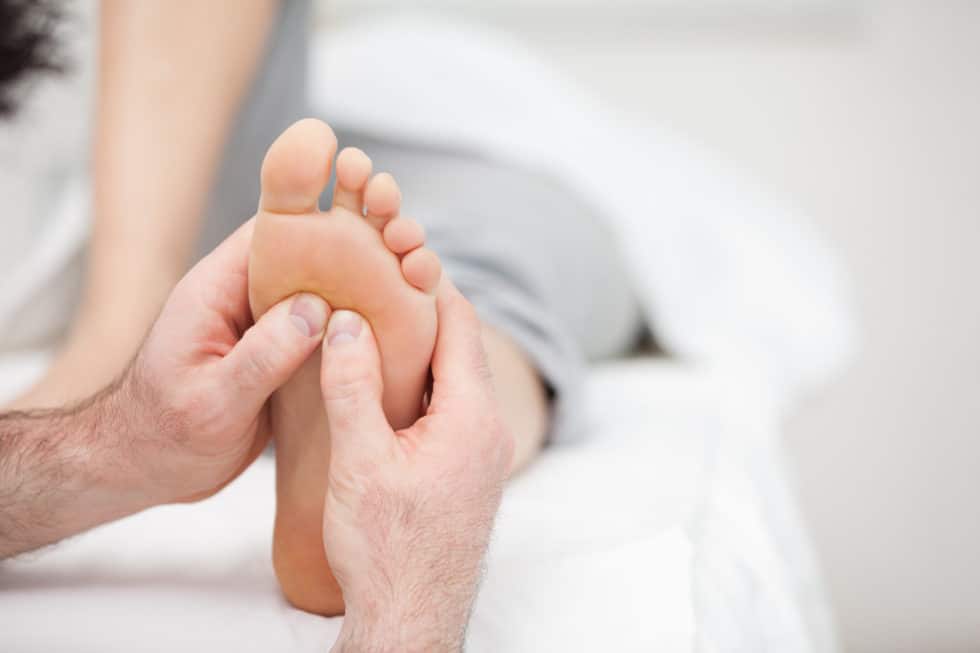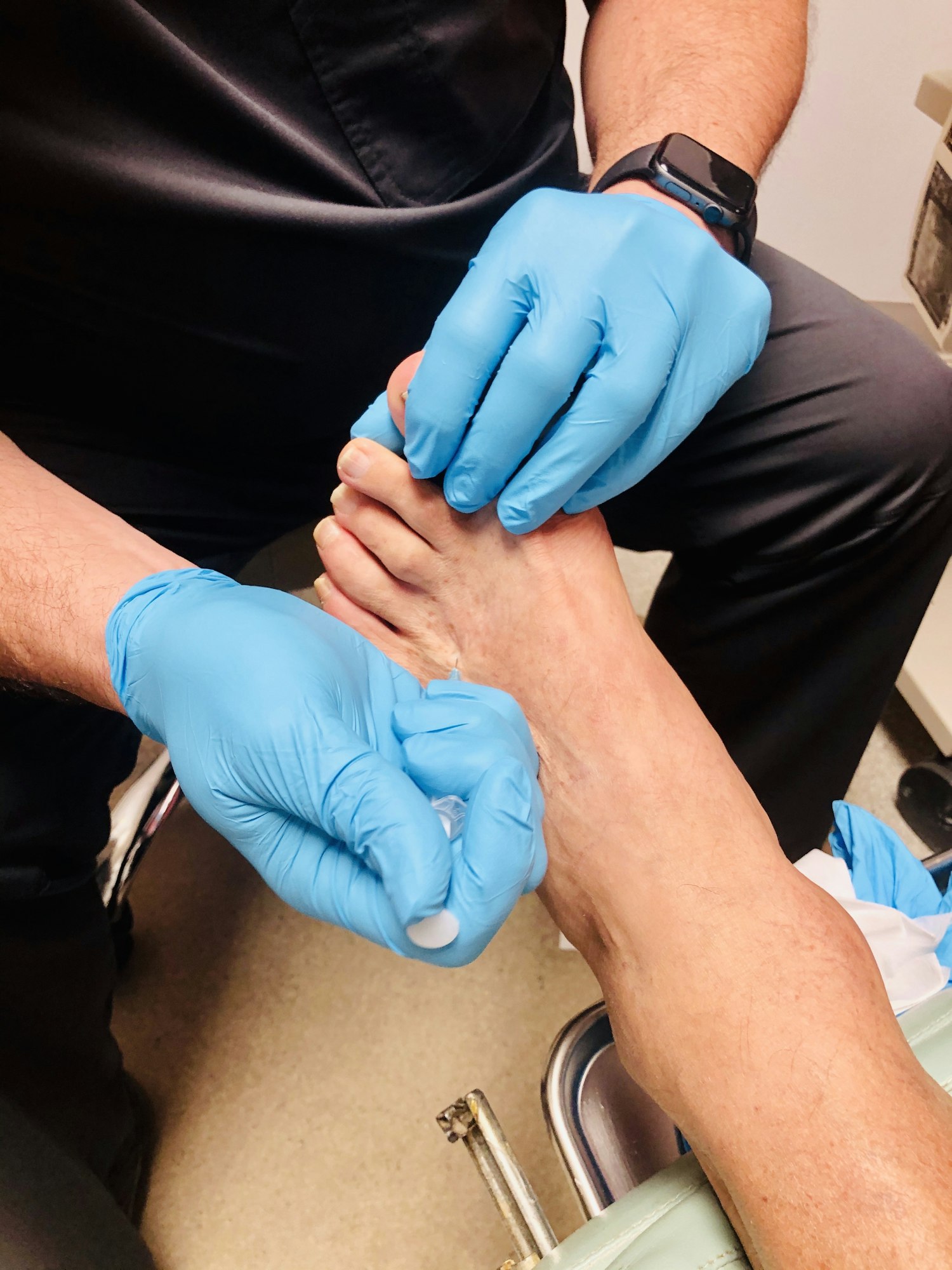Table of Contents
Introduction
Nerve pain in the feet and legs can be extremely debilitating—especially if you ignore the early warning signs and let conditions develop unchecked.
It’s also a lot more common than you might think. And the number of Americans suffering from peripheral neuropathy and other related conditions is only growing. In particular, the rate of diabetes diagnoses only continues to increase.
While at first nerve problems may announce themselves as a mild tingling or cramping that occurs only occasionally, in time they may be responsible for almost constant pain—until you lose all sensation in your feet entirely.
In the painful stage, that could mean a loss of ability to work or enjoy your activities, or drive your car. As numbness sets in, you could become very unsteady on your feet—and your risk of severe injuries, wounds that wound heal, and amputation grows immensely.
Now, at Premier Podiatry & Orthopedics, our experts have many advanced, professional treatment options to assist our patients with nerve pain. We’re proud to take the lead in this extremely important, yet underappreciated, field of medicine.
But as with many other foot conditions, the way you treat your body and your feet on a day-to-day basis, at home, is the most important determining factor for how healthy your feet stay over the long term.
These tips can help anyone with neuropathy, at any stage, start to take better control over their condition, minimize their symptoms, and defend themselves against further deterioration in nerve health.
Get Healthy Exercise, Often
Remaining physically active is a key component in preserving peripheral nerve health, for many reasons—reduced inflammation, improved blood flow to the feet, better blood sugar control, pain relief, and improved balance chief among them.
The trick is to do so while also protecting your feet against injury—especially if your nerve condition has led to loss of sensitivity.
For starters, always wear the proper protective shoe gear, including any orthotics you may have been prescribed.
Second, consider choosing low-impact sports and activities for most of your exercise. Swimming, cycling, yoga, and just plain old walking are all great choices. Also, incorporate weight training, flexibility, and balance exercises into your routine.
Third, go easy on yourself at first. A healthy goal for most people is about 30 minutes per day of moderate exercise, 4-5 days per week. But some people won’t be able to achieve that right away, and doing too much, too soon can lead to injury. Start with what’s achievable and comfortable, then increase by no more than 10 percent per week until you’ve reached or exceeded your goal.
Eat Right (and Supplement If Necessary)
Just like any other part of your body, your nerves need a balanced mix of nutrition in order to function their best.
No big surprises here for the core of your diet: Fresh veggies, fruits, and whole grains should probably make up most of what’s on your plate, unless you have any particular medical concerns that require a different approach.
For nerve health in particular, B vitamins (like niacin and folate), vitamin C, vitamin E, potassium, and magnesium are especially crucial. Our office can provide or recommend additional dietary supplements for nerve health to patients if we think they need them.
Also, drink a lot of water.
Avoid or Limit the “Toxins”
Number one on this list is smoking. If you smoke or you use any form of tobacco even occasionally, we strongly encourage you to quit completely as soon as possible. Tobacco use constricts and reduces circulation to the legs and feet, which is especially devastating for nerve health.
Another “toxin” that many people don’t fully appreciate as such is sugar. No, we’re not saying you have to cut all carbs from your diet. But consuming a lot of sugars can lead to inflammation and circulatory issues that weaken nerve health—even without a diabetes diagnosis. Try to cut out the sweets, sugary drinks, and other junk food as much as possible.
Lastly, there’s alcohol. Here, again, moderation is key. One drink with dinner is no problem at all for the vast majority of those of legal age, but you don’t want to go too much higher than that on a regular basis.
Get Enough Rest
Every organ, system, and tissue in your body needs sufficient sleep to repair, replenish, and refresh itself. Your nervous system, including your peripheral nerves, are very much included here.
Sleep deprivation and disturbances greatly weaken your body’s natural repair mechanisms and immune response, and can even make your neuropathy symptoms worse.
The tough thing is that, the worse your neuropathy gets, the harder it becomes to actually get the sleep you need, since the pain itself can keep you up at night. So you may need to take a few extra steps to ensure you’re getting a good night’s rest, including:
- Go to bed and wake up at consistent times, targeting a minimum of 8 hours of sleep.
- Set pre-bed routines that help you relax, such as reading a book or taking a bath.
- Make sure “screen time” (including phones and TV) ends at least an hour, preferably two, before bedtime. (We know this one is especially hard.)
- Make your bedroom as dark as possible. Get blackout curtains if you don’t have them.
- Avoid eating heavy meals or drinking alcohol right before bed.
- Reduce or eliminate your caffeine intake overall, especially in the 6-8 hours before bed.
Get a Foot Massage
No, seriously!
Not only do massages feel great in general, but they can also stimulate healthy blood flow to the feet and relax tight muscles that might be pressing on nerves. At the same time, you’re releasing endorphins, hormones that act as natural painkillers in the body. The result can be a noticeable temporary improvement in symptoms such as tingling and burning.
You don’t need to shell out at the spa or the mall to get a foot massage that will help with your neuropathy, either. A quick self-massage at home can still work wonders.

Seek Our Help as Early as Possible
Okay, mea culpa. This is not a “home treatment,” at least not unless you count making the initial phone call. But if you have nerve pain—or you even suspect a nerve issue—you should never wait to get a professional evaluation.
As we said at the top of the blog, nerve conditions have a bad habit of getting worse over time if you ignore them. And the more extensive your nerve damage becomes, the less likely it will be that symptoms will be fully reversible.
We will help you diagnose your condition, provide you with a solid action plan for minimizing the damage to your nerves, and offer any preventative care options you need to protect your feet—such as orthotics or diabetic shoes.
Early intervention from the foot care specialists at Premier Podiatry & Orthopedics, in combination with healthy improvements in your lifestyle, can usually spare you from the most severe effects and complications of nerve pain in the long run.
So don’t wait to pick up that phone. Give us a call today at (916) 961-3434 to schedule your appointment. Or, if you prefer, you can reach out to us online via our contact form.
Looking to schedule an appointment with a physician?
Schedule an appointment with us by calling (916) 961-3434 or by clicking the button below to begin requesting your appointment today!


